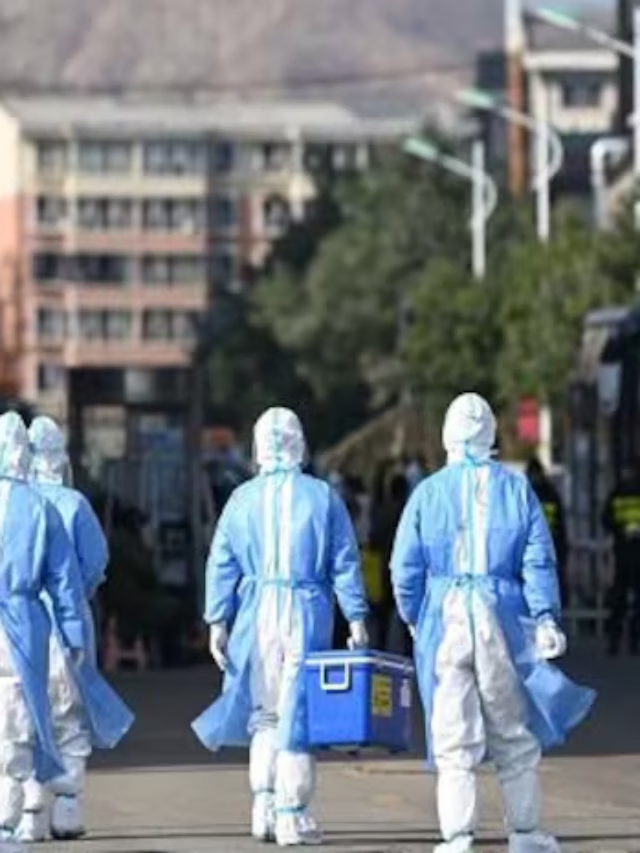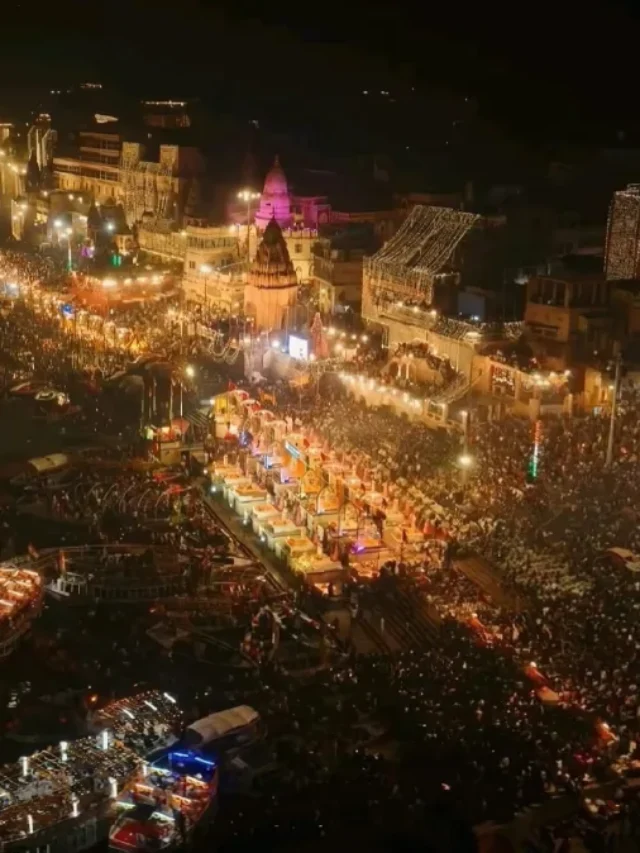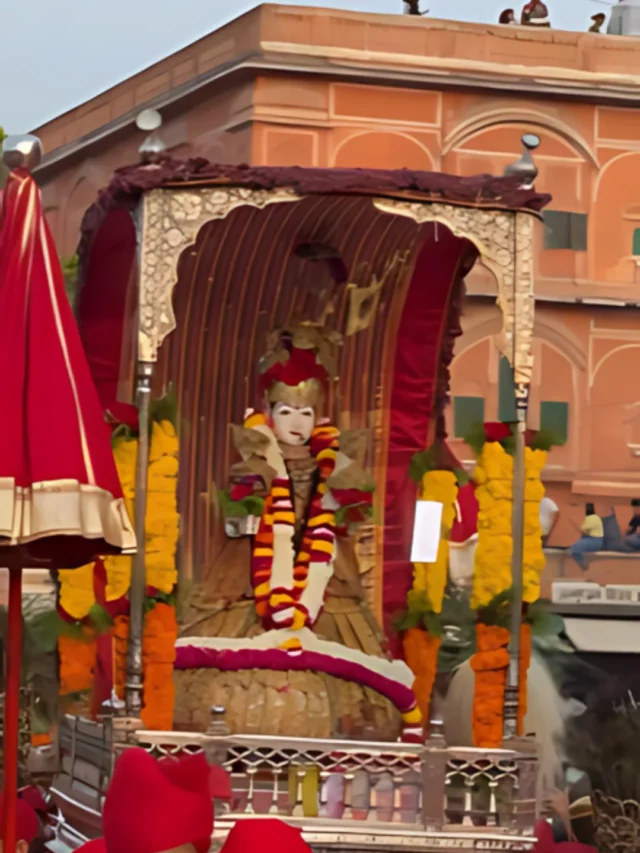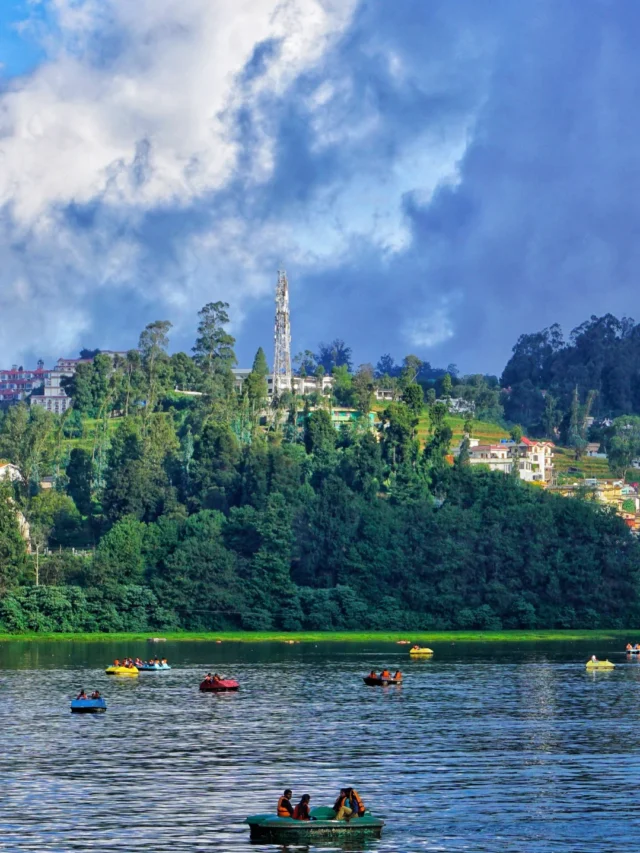The Pangarchulla trek is one of the most popular treks in Uttarakhand due to its low altitude and enriching adventure. It is one of the only treks in India that provides a thrilling experience of a moderate-difficult trek at an altitude as low as 4,590 metres! If you plan on going here, read along to know how your trek will unfold!
The Picturesque Peak of the Pangarchulla Trek
At 4,490 metres above sea level, Pangarchulla, an arena for the entire Garhwal Range, is ideal for those who want to experience the high mountains at a comfortably low altitude. With just the right amount of challenge and breathtaking views, it is one of the few peaks that introduce you to difficulties other than those with altitude in the Himalayas. Giants like India’s second-highest peak, Nanda Devi, and its third-highest peak, Kamet, Dronagiri, Hathi Ghoda, Chowkhamba, Mana, and Neelkanth, to mention a few, towering like iron knights, making climbers nervous.
Until the last day, the Pangarchulla and Kauri Pass routes stay unchanged. You have an unhindered view of Nanda Devi to your left and the summit of Pangarchulla to your right, perched above a lush forest full of pine trees, as you go to Dhak, the head route for this amazing mountain. This 6-day walk covers a lot of ground in a short time. The Pangarchulla trip exposes you to a variety of scenery performing all kinds of magic in a very short time, from little communities to dust paths leading to large open meadows, deep woods, pure streams, and rocky areas plunging into the white of the snow.
Pangarchulla Trek – Detailed Itinerary
The Pangarchulla trek is a reverential trek that takes you through continuous scenic vistas of many significant Himalayan mountains. It is one of winter and summer’s most beautiful and perfect treks. If you wish to see a little snow, you can do the trek in summer; if you’re looking for thickened snow blankets everywhere, winter is the perfect time for you.
The Pangarchulla trek starts from Dhak, which is 30 minutes away from Joshimath. To reach Dhak, you must first reach Joshimath from Rishikesh or Dehradun via road. From Joshimath, you can take another public transport to reach Dhak – if you’re with an operator who provides group trekking, your transport might have already been arranged; check with them beforehand.
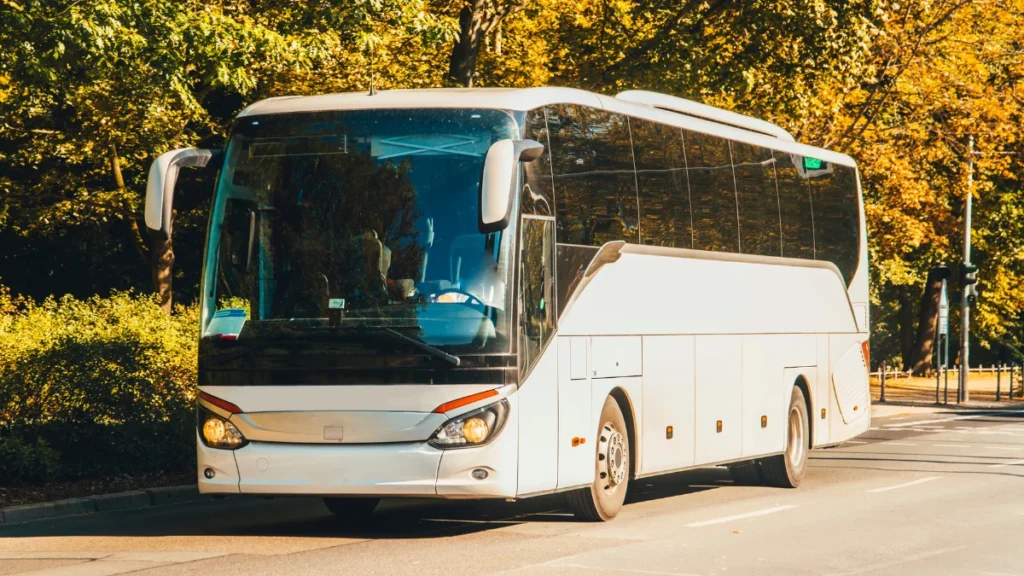
Day 1: From Rishikesh/Dehradun to Joshimath
· Day 1 is only the start of the picturesque valleys of the Himalayas. You can take a cab or bus from Dehradun or Rishikesh to Joshimath. While on your way, you will notice many trees and the Ganges following you as you wind your way up and down. The smooth roads and pure air will make you feel like you’re in heaven – which is why Uttarakhand is rightly called ‘Devbhumi – the Land of Gods’.
· Joshimath is about 10 hours from Dehradun, and the route will take you through many valleys and the city of Rishikesh. This drive will be enough to acclimatize you for the day at an altitude of 800 metres. You can rest at Joshimath in a guest house to prepare for the next day.
· It is advised that you drive to Joshimath early in the morning. As the drive is long, delays are expected – if you take it on early, you will reach Joshinath in time to tour the holy city and rest.
· There are many options for food along the way to Joshimath – you will never run out of places for food and water. You can have breakfast as well as lunch in one of the dhabas that accompany the route you’re on.
Day 2: From Joshimath to Guling via Dhak
Dhak is a small village just 30 minutes from Joshimath and is the base for your trek. Dhak is where the trek starts.
· As day 2 is short, you can wake up whenever you have breakfast at your guest house or any restaurant nearby before taking a cab or bus to Dhak. It is advised to pack light for the coming trek and leave unnecessary items from your backpack at your guest house. Dhak to Guling is just 5 hours of trekking the trail.
· Once you reach Dhak, the trail is easy to follow. The trail for popular treks like Kuari Pass is the same as the Pangarchulla trek’s route and is well-marked.
· When in Dhak, witness the colourful houses and take in the natural beauty of your surroundings as you walk the village’s roads towards a more stone-ridden path. Once you reach the stone-ridden path, you can walk up the steep trail and admire the beauty of the mountains surrounding you. The Dronagiri mountain will be at the forefront throughout this route as you pass through villages like Kharchi, Upper Tugashi and Lower Tugashi. You can also spot the Pangarchulla Peak from here.
· There is ample water and food supply here, with stalls marking your way – you can have lunch and breakfast at one of the food stalls and buy or refill your water bottles for the journey. As this trail leads to many other popular peaks, the commercialization here is at its peak – you will not lose your way or go hungry or thirsty.
· As you walk, you will reach Guling, your base camp for the night. You can have lunch at Guling or right before you reach Guling. After reaching there, pitch your tent for the night and enjoy.
· You can also go for an acclimatization walk to adjust your body to the changing weather.
Day 3: Guling to Khulara
· Khulara is just 5 kilometres from Guling and takes only 3 hours to trek. You can wake up late and have breakfast at Guling before heading to Khulara.
· The path to Khulara is a short but beautiful one. Guling is an open area, while the road to Khulara is closed through a thick forest. You can occasionally feel sun rays through the trees like a fishnet covering your skin.
· Interestingly, one of the many trees here is the bhojpatra tree. Locals use it to make butter tea. Butter tea is a popular Tibetan drink that keeps you warm during winter. You can also try it if you find one of the stalls selling it!
· If you’re with a trekking guide, they will let you know about the many trees surrounding you in the forest and stories about this beautiful region.
· As you exit the forest, you will come across a large clearing with magnificent mountain views– Khulara. You can pitch your tent here and have lunch.
· The sunset from Khulara is an incredible one. You can see the sun melting into the sky and oblivion up close. This jaw-dropping scene is an experience that comes only once in anyone’s life. You can sit by in the evening with tea and a bonfire to relish this eye-popping vista.
· From Khulara, you will need certain trekking gears to help you ease the climb – if you’re with an operator, they will provide the items.
· Rest well in Khulara, as the climb the next day is a long one.
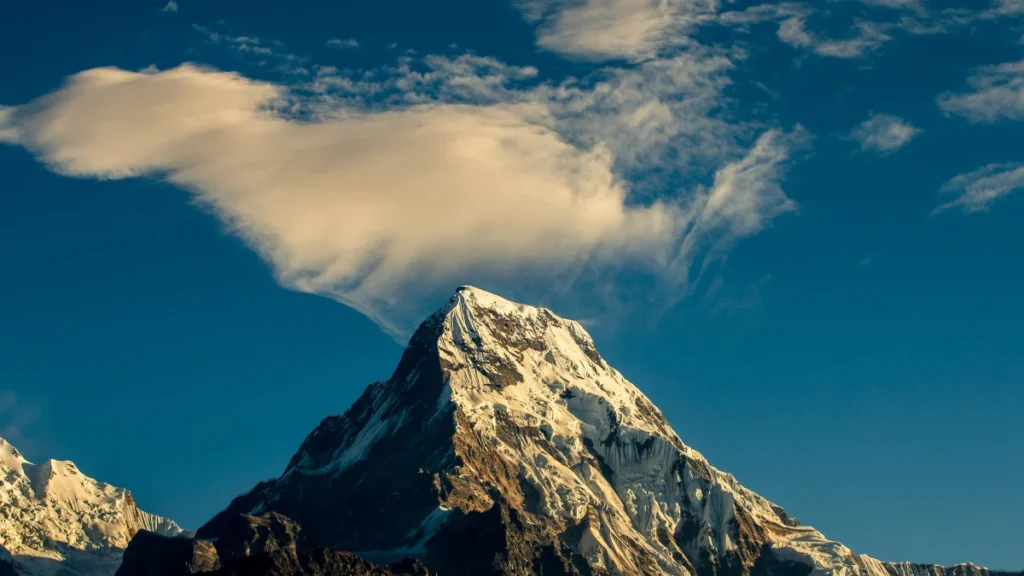
Day 4: Khulara to Pangarchulla and The Return Journey
· This is the longest you’ll walk on this trek – the trek is 12-16 hours long. It will take you to the summit and back to Khulara for your return journey. Ensure you have enough water bottles for your journey, as no water is available between Khulara and Panagachulla.
· Start early – around 3-4 A.M. and walk towards the peak. The night sky along your way is gorgeous and a treat for the eyes. It would be best to layer up tightly, as early mornings are extremely cold and windy.
· As you walk further, you will come across a stone temple where two roads will separate. The one on the right leads to the Kuari Pass, while the one on the left leads to Pangarchulla Peak. Take the left road and walk the steep path towards the summit.
· Before reaching the next section of the trail, there are three ridgelines to walk; these are particularly difficult to navigate because they are exposed and windy. There are a few short sections of descent on this patch, which is a nice break from the steep inclines going up. On your way, you will see the sunrise behind the clouds and mountains. The view is a spectacular one.
· As you walk about 4 hours on this trail, you will encounter the most difficult bit of the whole trek – the boulders. The rocky terrain here is difficult to walk and requires energy and focus. It gets easier once you get the hang of holding on to the rocks and passing them with time. From the start of this reasonably flat portion to the bottom of the peak, it will take close to an hour and a half, but be very careful as large gaps between the rocks may cause much damage with even a small slip.
· As you reach the bottom of the Pangarchulla Peak, you will notice that the climb upwards is very steep. If you’re going in winter, the climb will be harder due to snow and boulders. Keep your trekking gear handy. This climb is the final part of your difficult climb and will take about two to three hours to reach the summit.
· From the top of the mountain, you can take in the complete scenery of the Himalayas. You will witness the many mountains surrounding you as you stand atop this one – a rush of energy will seep through you, and your tiredness after the long and hard trek will vanish in the crisp air of the mountains. You can stay here and enjoy the view for a while. There is a small temple atop the mountain where you can pray before returning to the base.
· For your descent, take the same route you climbed. Descending the steep path is harder than climbing it and will take comparatively more time. Hike back to Khulara on the same route. Set your tent up again and rest for the night.
Day 5: Khulara to Joshimath via Dhak
· On the final day, you trace back your footsteps through the route you arrived in. You can directly walk from Khulara to Dhak without stopping by for the night at Guling.
· From Dhak, take a cab or bus to Joshimath. You can finish your journey in Joshimath and head back home or travel around the places near Rishikesh and Joshimath, like Mussoorie, Dehradun and Nainital.
Basic Information of Pangarchulla Trek:
Pangarchulla Peak Height: 4,590 metres
· Pangarchulla Trek Distance: 47 Kilometres
· Difficulty Level: Difficult
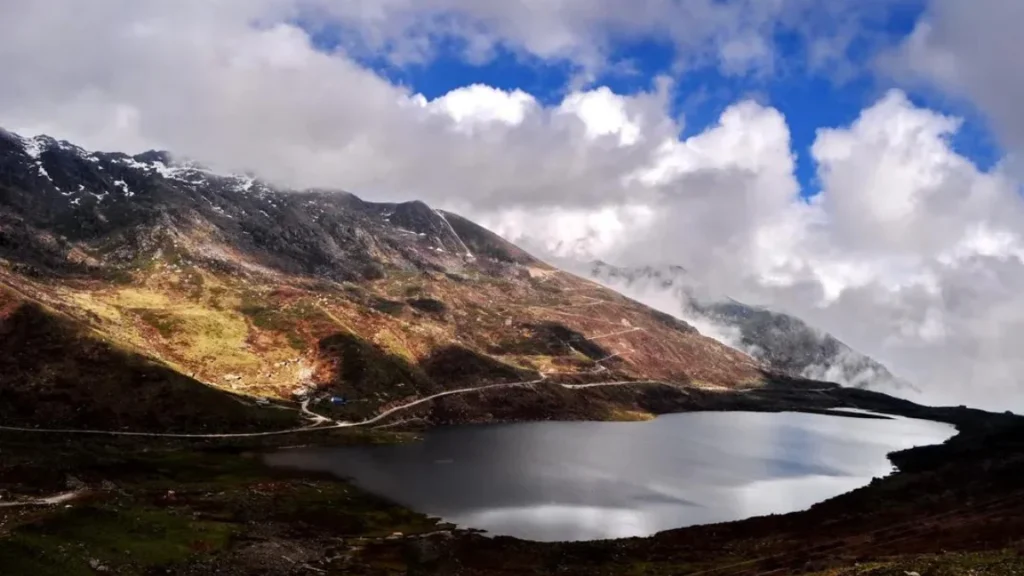
Tips for Doing the Pangarchulla Trek:
· Ensure safety by testing all trekking gear beforehand; pack a first-aid kit.
· Pack light. As you’ll be climbing steep paths and the grade of the trek is difficult, you should carry a backpack as lightly as possible.
· Ensure you have enough water. Do not buy water bottles – getting your refillable bottle is more eco-friendly. Buy bottles only when necessary.
· Travel responsibly. Do not litter around – keep your trash in your backpacks and throw it in a dustbin when you return to the base.
· If you’re a first-timer on a trek in the Himalayas, you should go first with operators. There are many Pangarchulla trek packages available online as well as offline. It will be easier to hike with a trained trekking guide who will help you. They also have a cook and a medical professional in their group.

Pangarchulla Trek Cost
The Pangarchulla trek will cost you between Rs. 10,000 and 15,000 if you choose to hike with a tour operator. If you do it yourself, the cost will be Rs. 5000-10,000 more than the package cost.
Conclusion
Dawning from the sleepy town of Joshimath, the Pangarchulla trek unfolds like a meticulously woven tapestry of natural wonders, enveloping trekkers in the vivid hues of the Garhwal region as the sun sets and its essence echoes in the hearts of adventurers who dared to traverse its enchanting paths. Step by step on this Himalayan voyage, which immerses wanderers in the wild grandeur of varied landscapes while challenging physical and mental fortitude, offers panoramic vistas of snow-kissed peaks, among them the royal Nanda Devi and Hathi Parbat.
Wilderness campsites provide peaceful moments and an opportunity to connect with the unadulterated power of the mountains, but the real treat comes at the top of Pangarchulla, which towers 4,590 metres above the ground. From here, the Garhwal Himalayas spread out in all directions, leaving a lasting impression on those who make it to the top.
Ultimately, it is not just a trek; it is an odyssey that beckons adventurers to embrace the grandeur of the Himalayas and create enduring memories in the lap of nature’s magnificence. As the trek ends, Pangarchulla leaves its mark—a perfect blend of challenge and beauty, weaving tales of resilience and triumph against the backdrop of pristine mountain vistas.



